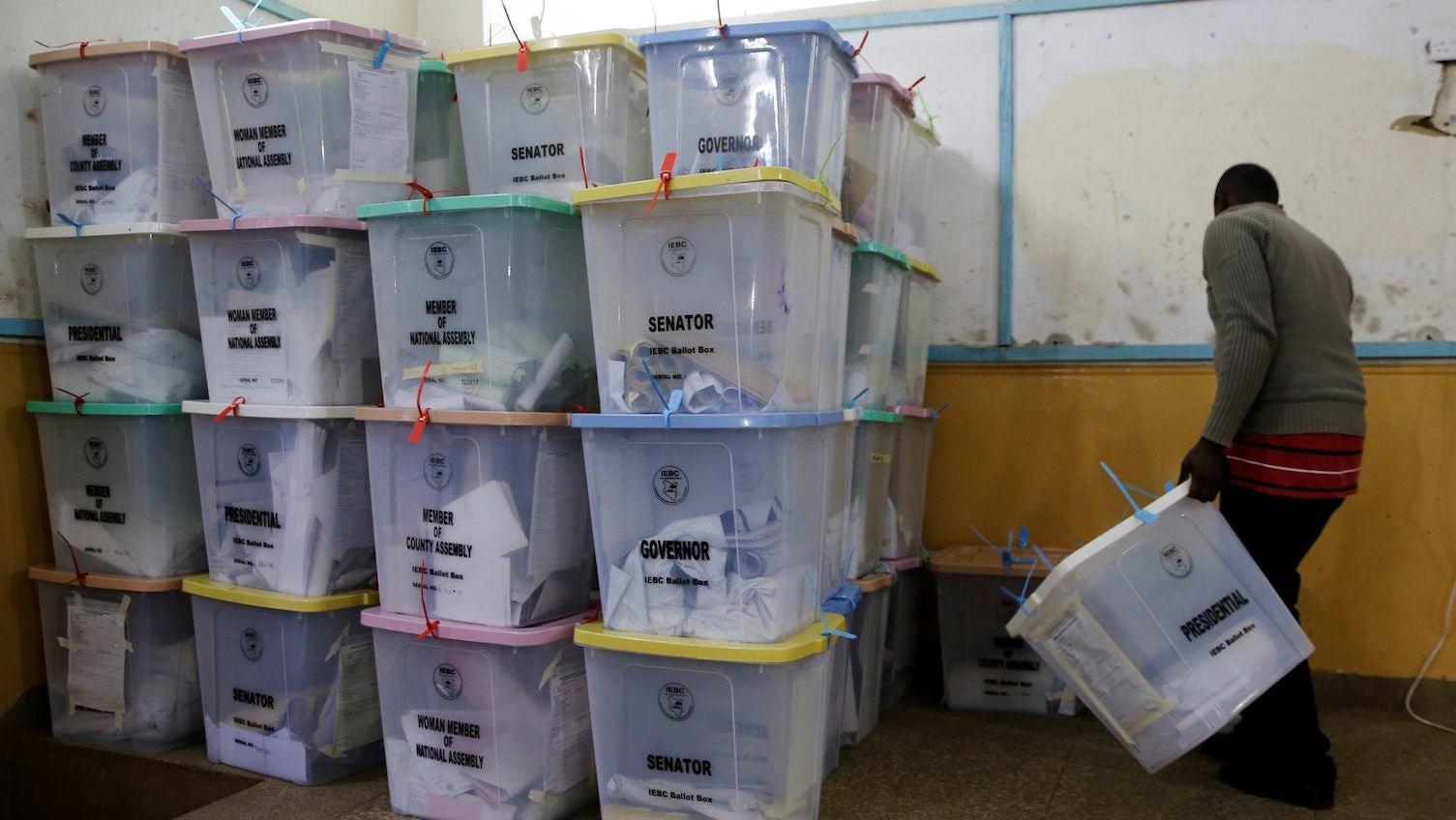Kenya’s opposition says the election was hacked in the president’s favor
Kenya’s opposition leader Raila Odinga and his NASA coalition party have rejected the results of the country’s general election, saying the electoral commission’s database was “hacked” to manipulate data and tamper with results.


Kenya’s opposition leader Raila Odinga and his NASA coalition party have rejected the results of the country’s general election, saying the electoral commission’s database was “hacked” to manipulate data and tamper with results.
On Tuesday (Aug. 8), more than 19 million Kenyans went to the polls to choose their next president as well as almost 2,000 legislative, gubernatorial, and regional county representatives. With more than 80% of the votes counted as of Wednesday afternoon, president Uhuru Kenyatta was the apparent winner, with 7.7 million votes in contrast to Odinga’s 6.3 million, according to Kenya’s electoral commission.
In a press conference on Wednesday, Odinga said hackers manipulated the election database using passwords stolen from slain electoral official, Chris Msando. Msando, the senior electoral official in charge of managing the IT systems of the voting technology, was found dead outside of Nairobi a week before the election.
Calling the election “a fraud,” and a “tragedy of monumental proportion,” Odinga said hackers had gained access to the database at 12.37 pm on election day, creating errors and introducing algorithms that rigged the election in favor of president Kenyatta. He declined to provide the source of this information. NASA said that, according to their tally, Odinga had 8.1 million votes against Kenyatta’s 7.2 million.
Kenya’s Independent Electoral Boundaries Commission (IEBC) said they would investigate the allegations, and that they could not confirm yet that the system had not been compromised. The IEBC has started to publish the automatically generated results from each voting station known as Form 34As from all 40,833 polling stations.
The stand-off threatens the relative calm of election day. Voters described a light, joke-filled atmosphere as they waited in long lines to vote on Tuesday. Kenya’s largest cities like Nairobi were calm as residents stayed home. After Odinga’s press conference, police in Kisumu in western Kenya used tear gas on a group of protesters. Protests were also reported in Mathare, a slum in Nairobi.
“We call on Kenyans to remain calm, but there may come a time when we will call you to action,” Odinga’s running mate Kalonzo Musyoka said during the press conference.
When Odinga’s party disputed the results of the 2007 presidential election, the violence that followed claimed the lives of 1,100 people. The dispute was resolved in part by a power sharing agreement in which Odinga became prime minister. This time, Odinga has taken that option off the table, describing any power sharing agreement as mkate nusu or a “half bread” deal.
Describing the alleged hack as an “attack on our democracy,” echoing language used by US politicians over Russian efforts to interfere in the US presidential election, Odinga seemed to also appeal to the international community.
Observers have cautioned the public to wait until official are released. “These are not results. These are numbers. No one knows where they are coming from,” Maina Kiai, former United Nations special rapporteur on human rights said. “Anything else is illegal. Anything else is subverting the constitution. Anything else is a civilian coup.”